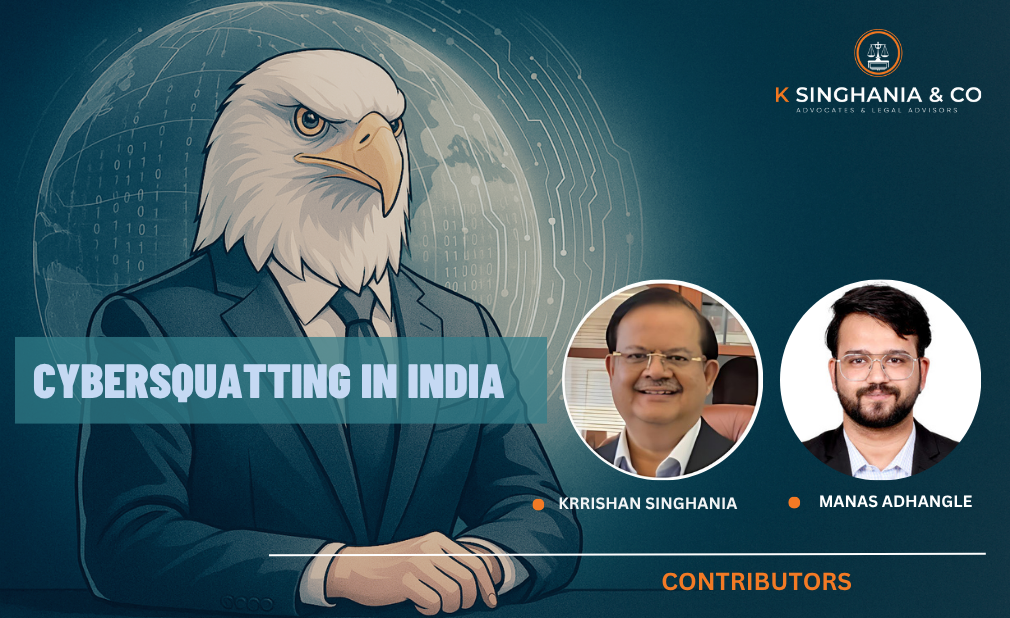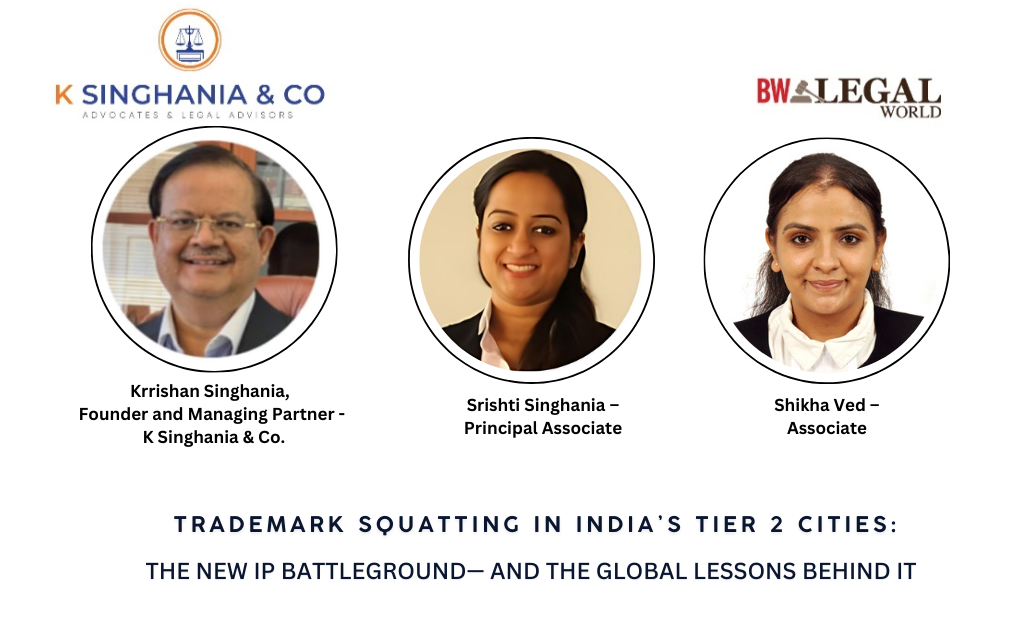The field of Intellectual Property laws has not been untouched by the raging pandemic. However, the Indian IP Office has been adapting to these changing times and is facilitating electronic filings and hearings. Even the Indian judiciary has been taking up hearings though video conferencing, and has not been shy of passing judgments on some important Intellectual Property matters. While the foreign trade has definitely taken a huge toll because of the pandemic, the Indian government on May 14, 2020, called for an agreement among G20 nations to enable the use of flexibilities under a WTO pact on Intellectual Property Rights to ensure access to essential medicines, treatments and vaccines at affordable prices. Having said this, we bring to you some of the key developments which have occurred in the month of May and June in the field of intellectual property laws.
Key Government Announcements
Status Quo at the Indian IP Offices
The statutory deadlines at the Indian IP Offices will remain terminated and the interim orders will remain to be in force until further direction at the Delhi High Court and the Bombay High Court. Recently, on June 19, 2020, the Controller General of Patents, Designs and Trade Marks and Copyrights announced that the statutory deadlines for all the matters related to trademarks and copyrights shall be extended until further orders from the Supreme Court of India. Further, the Delhi High Court and the Bombay High Court has passed to extend its interim order until July 15, 2020. The order also applies to their respective subordinate courts.
Intellectual Property Appellate Board announces e-filing of cases in the wake of COVID-19
A notification was issued by the Intellectual Property Appellate Board (“IPAB”) on May 11, 2020, regarding its functioning through the online mode. The notification lays down guidelines that should be followed by the litigants and lawyers. All the pre-requisites and steps to join the video conferencing have been mentioned in detail. As a consequence of the proceedings going online, a notification regarding the procedure of the e-filing of cases was issued on May 12, 2020. The notification lays down certain steps that should be followed for the e-filing of cases.
These steps are as follows:
- Fresh cases, commencing from May 2, 2020, to be filed through email to the Deputy Registrar at ipab.tn@nic.in. A copy should be marked to the respondent.
- Scanning of papers in green sheets is not required until further instructions.
- Pleadings can be filed on A4size sheets for the time being.
- Withdrawal of all petitions and appeals for all zones barring Delhi are to be listed
- In case of urgent hearings, the Counsel/Advocate may file the petition along with Miscellaneous for urgent hearing, as per procedural rules.
WIPO launches COVID-19 IP Policy Tracker
The World Intellectual property Organization (WIPO) has launched the Covid-19 IP Policy Tracker that provides information on measures adopted by IP offices in response to the COVID-19 pandemic, such as the extension of deadlines. Also, the policy tracker provides information on legislative and regulatory measures for access and voluntary actions.
The COVID-19 IP Policy Tracker relies on contributions made by IP Offices, member states, and other entities for its content. While it is one of the most comprehensive sources of global policy measures, WIPO states that it is not an exhaustive list of all actions taken regarding COVID-19.. In the international scenario this is a very important and innovative step taken by the WIPO in terms of recognizing and providing information on the various policies adopted by the member states all over the world.
Recent Case Laws
Costs of 1 Lakh imposed on account of using the mark DEVTOL

In a trademark infringement suit filed by manufacturer of the widely known mark DETTOL, the High Court of Delhi has imposed costs of Rs. 1 Lakh on the manufacturer of a deceptively similar “DEVTOL” hand sanitizers. The court further recognized that the mark DETTOL is a well-known mark, following which passed a decree of permanent injunction against the Defendant. The court also ordered the Defendant to recall all the existing stock in the market.
Court restrained a commercial comparing the health drink COMPLAN with HORLICKS
The High Court of Delhi restrained, Zydus Wellness Products Ltd. (“Zydus”) from airing a commercial comparing its health drink COMPLAN with HORLICKS. Horlicks Limited and others (“Plaintiffs”), claimed that the manner and storyline of the commercial shows Zydus’s intent to denigrate the plaintiffs’ health drink HORLICKS. On the other hand, Zydus claimed that the intent and effect of the commercial was to educate consumers that the protein content in one cup of COMPLAN was equal to two cups of HORLICKS, as per recommended serving sizes of 33 grams and 27 grams, respectively, provided on the packages. The court noted that there was no voiceover regarding the disclaimer on serving sizes in the commercial, and a time of six (6) seconds was not sufficient for viewers to read the disclaimer. The court held that the Plaintiffs have made out a prima facie case for grant of an interim injunction restraining Zydus from airing the said commercial which disparages the Plaintiffs’ product, and in case no interim injunction is granted, the Plaintiffs would suffer an irreparable loss.
Dainik Jagran Sues Telegram for Copyright Infringement
Dainik Jagran (“Plaintiff”) brought a suit against Telegram (“Defendant”) and unnamed defendants operating certain Telegram channels, which allegedly circulate versions of the Plaintiff’s newspaper through PDF. The version circulating is downloaded from the Plaintiff’s web-portal, where registered users can view the e-paper free of cost. According to the plaint, the Plaintiff has also included a technological protection measure which restricts the download of the e-paper. While Telegram was served notices on the alleged infringement occurring through its channels, it did not respond, and consequently, the Plaintiff brought a suit for copyright and trademark infringement against Telegram as an intermediary, and against the users, owners, and operators of the various ‘channels’ on which the alleged infringement was taking place. The Court found prima facie infringement of Dainik Jagran’s copyright and subsequently granted the ad-interim injunctions prayed for, directing Telegram to furnish information about the administrators and members of the channels, and directing Telegram to take down the infringing channels. As per the landmark judgement in the Myspace v. Super Cassettes intermediaries (like Telegram) can take the cushion of Section 79 of the IT Act, which is a safe harbor for the intermediaries. The only two conditions that are necessary to shelter under this safe harbor is that the intermediary should not have the ‘actual knowledge’ of the content being illegal, and also, it did not fail to take down such a content when such an information was given. In the present case, the notice plays a vital role where Telegram was apprised of the infringing content by Dainik Jagran’s notice, but they chose to ignore the same.
Delhi HC Temporarily Injuncts Textile Company from Selling Face Masks Having the Logo of Tommy Hilfiger.
Tommy Hilfiger (“Plaintiff”) has filed the present suit seeking permanent injunction restraining the Defendant from infringing and passing off the Plaintiff’s trademark ‘TOMMY HILFIGER’ with its variations and the flag logo i.e. ‘TOMMY HILFIGER’, ‘TOMMY’, ‘TOMMY SPORT’ and (the Flag Logo) which is registered in various classes as mentioned in para 16 of the plaint. Taqua Textile (“Defendant”) was producing and selling masks with these figures in their product. After, proper Investigation it was concluded that the Defendant waswrongly using the names and mark of the Plaintiff.
No monopoly over the term ‘Magic Masala’ : Madras High Court
In a tussle between ITC-Nestle, a single judge bench of the Madras High Court decided against ITC (“Plaintiff”), who had sought a permanent injunction against Nestle (“Defendant”) to prevent them from using the mark ‘Magic Masala’, which Plaintiff claimed had achieved distinctiveness. Plaintiff claimed that Nestle was passing off its noodle product Maggi Noodles with use of the phrase “Magical Masala” while describing the flavor. The court opined that the terms ‘Magic’ and ‘Masala’ are commonly used terms in the package and food industry by different manufacturers and it would be unfair to confer monopoly over the same expression. The court further held that such adoption cannot be said to be malafide. It was a legitimate adoption by the Defendant as no person can appropriate common and laudatory words.
IP AROUND THE WORLD
Amazon goes “on the offensive” on its battle against knockoffs
In a recent announcement by the online retailer giant, Amazon, are in talks to launch new Counterfeit Crimes Unit as the latest effort to fight counterfeit products on its website. The new team is said to be made up of “former federal prosecutors, experienced investigators, and data analysts,” who will work to proactively “go on the offensive” against counterfeiters, instead of just reacting by trying to identify and block bad listings.
An interactive map locates European Spirits GIs
In a more than welcome initiative by the trade association Spirits Europe, an interactive map has been created which pinpoints all of Europe’s 240 spirits with recognized geographical indicators. The director of the Spirits Europe said, “The map shows where exactly in Europe the 240 different GI spirits are from. Products like Cognac, Irish whiskey and Polish vodka are among our most well-known, yet the list is so much longer”.






